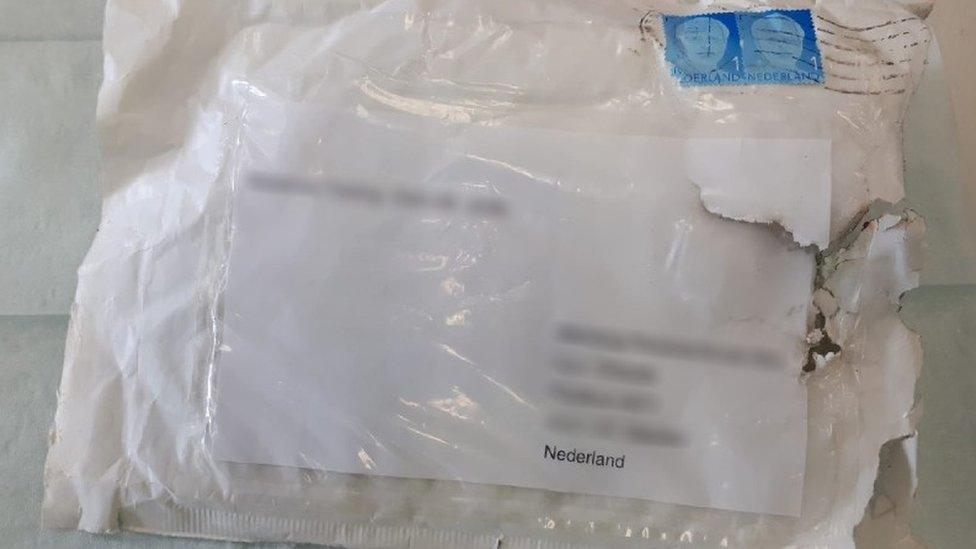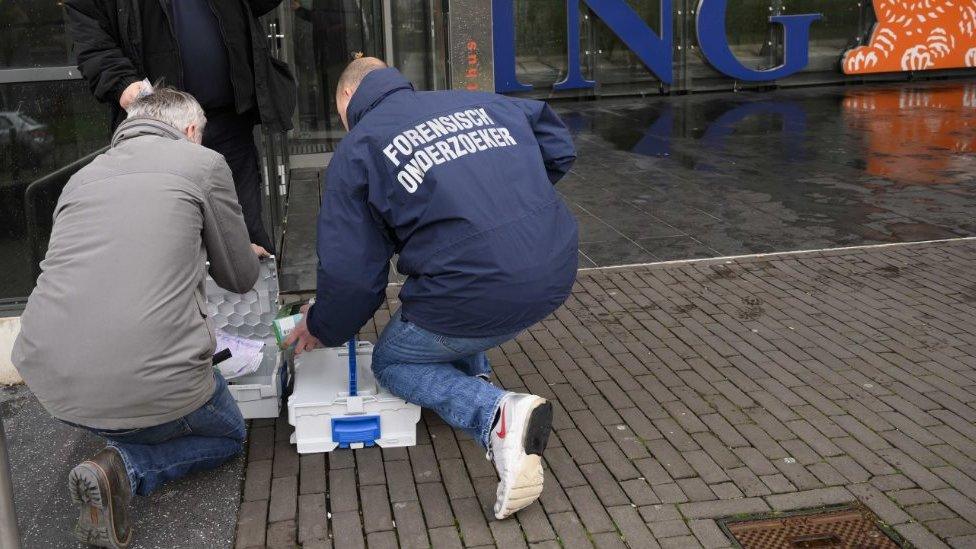Dutch letter-bomb blackmail campaign targets companies
- Published

Dutch police have warned companies to look out for padded envelopes with two stamps
Police are investigating a spate of letter-bomb attacks on companies across the Netherlands.
Four letter bombs have been found in the past two days.
The head office of ING bank in Amsterdam was the latest place to be targeted on Thursday.
Police say the attacks so far have all included blackmail letters demanding payment in Bitcoin. "We need to see if they're all connected," a spokeswoman told the BBC.
The attack on ING's office in the Bijlmer area of south-east Amsterdam was still being investigated but so far no-one has been wounded in the attacks.
An office worker was treated by ambulance staff on Thursday for smoke inhalation.
Allow X content?
This article contains content provided by X. We ask for your permission before anything is loaded, as they may be using cookies and other technologies. You may want to read X’s cookie policy, external and privacy policy, external before accepting. To view this content choose ‘accept and continue’.
There have been 11 attacks involving letter bombs since the start of the year and the government has described the latest incidents as worrying.
The blackmail campaign is similar to a rash of attacks on a Dutch supermarket chain in 2015. Three bombs were planted and a letter bomb was sent through the post alongside a succession of encrypted emails demanding payment in the virtual cryptocurrency Bitcoin.
Eventually the man behind the attacks, Alex O, was caught and given 10 years in jail.

Find out more about Bitcoin and blackmail
Bitcoin explained: How do cryptocurrencies work?

Two months of attacks
The letter-bomb campaign began in January, with a series of packages carrying the logo of a company in Rotterdam that specialises in debt collection. Police have stressed that the company, CIB, is not related to the attacks.
Letter bombs have since targeted companies across the Netherlands, including Rotterdam, Utrecht and Maastricht.
But for almost a month the attacks then stopped.
Two packages then blew up in the mailrooms of two firms in Amsterdam and Kerkrade on Wednesday, although this time neither bore the CIB logo.
The first was at ABN Amro, in the west of the capital, when a worker described opening a letter that started making a hissing sound. He threw it away and it made a bang, police said.

Forensic scientists have been trying to find DNA evidence from the letter bombs
The second went off around half an hour later in the mail room of a firm that supplies office products in the southern town of Kerkrade.
The first attack on Thursday morning targeted a financial services company called Unisys in Leusden in the centre of the country.
Not all the targets have been financial services firms. Hotels, sorting offices, a filling station, a car dealership and an estate agency have also been hit.
The device in Leusden did not explode and the Dutch bomb disposal unit dealt with the package, whereas the second letter bomb at ING's headquarters did.
Police said they had yet to analyse the ING bomb but all the others included blackmail letters demanding payment in the cryptocurrency Bitcoin.
A spokeswoman said details of the letters were not being made public nor were the results of forensic tests on the letters.
Police say for now they are investigating all scenarios.
- Published24 November 2019
